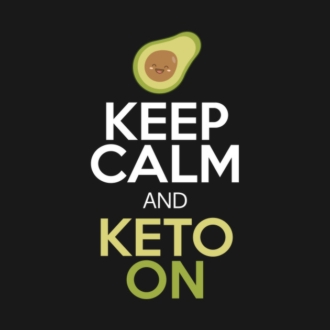I have a question that I have not seen addressed anywhere. Basically, I have been super stressed for weeks and the high stress has kicked me out of ketosis almost continuously for two months. When my body refuses to go into ketosis, is it healthy to eat all this fat? Obviously, the high cortisol is keeping my insulin high, so I wonder if it’s better to eat more carbs in this situation? If I can’t burn fat, what is all the fat I’m eating doing to my body?
Background: I have been keto for a year and half, with great success. Mental health, energy, perimenopause symptoms, weight: all have been better on keto. I track my ketones with a blood ketone meter. This year, some very stressful events have all occurred at the same time and I’ve done everything I can to manage the stress (meditation, yoga, exercise, sleep, deep breathing, supplements) and nothing seems to help. I can feel the stress!
As soon as the stress kicked in, my ketones have been hovering around 0.1 to 0.2 on my ketone meter. This has been going on for two months now. I have tracked my diet and been eating under 20 grams of carbs almost every day. I have fasted for forty hours and my ketones were even lower (I decided fasting was probably too much of a stress for me now). Basically, the more stress I feel, the lower my ketones are.
I did go on a carb binge for several days, just to see what would happen, and I felt bloated, gained almost 5 pounds (which I lost in a day when I went back to keto eating, so probably all water weight), but I did have a little more energy.
I’m not looking for ways to manage the stress in this thread. What I am concerned about is this: If I eat Keto over the longer term, but my body is not able to reach ketosis, is this unhealthy? Am I using my muscle to make carbs? What is all that fat I am eating doing to my body when I can’t burn it?





